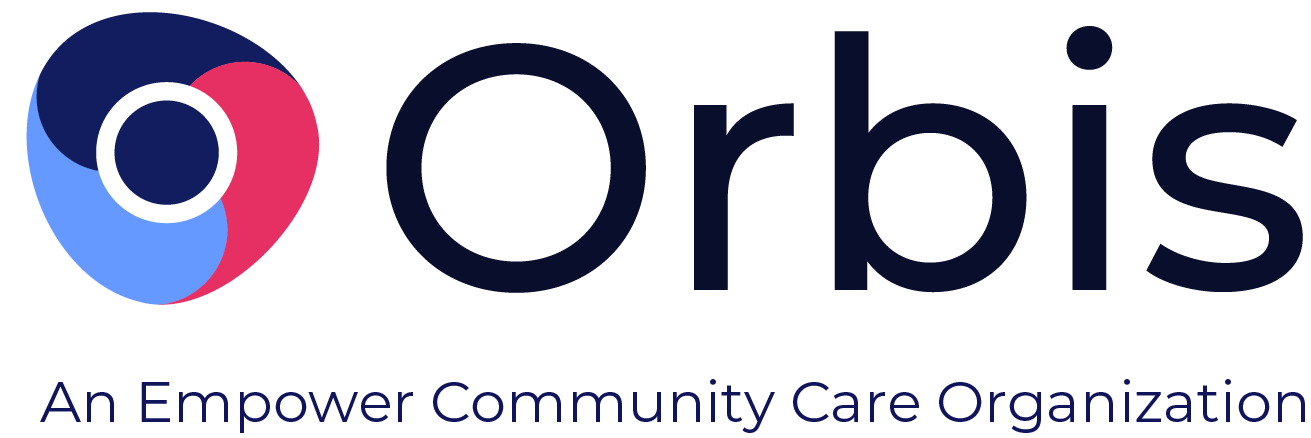May is Mental Health Awareness Month. As we come together to shine a spotlight on mental health, addressing the pressing issue of mental health within the criminal justice system is crucial.
This month provides us with a timely opportunity to recognize the importance of supporting individuals facing mental health challenges while navigating the complexities of the justice system.
The Intersection of Mental Health & Criminal Justice
In the criminal justice system, discovering the high prevalence of mental health concerns among those involved is disheartening. Behind the statistics lie real people with unique struggles, hopes, and dreams. The impact of untreated mental health issues extends far beyond the individual, affecting recidivism rates and the safety of our communities. It is a matter that demands our attention and compassion.
We cannot overlook that the criminal justice system faces significant challenges regarding providing adequate mental health care. Limited resources, persistent stigma, and insufficient training for staff members create barriers to adequate support. These challenges hinder the well-being of justice-involved individuals and prevent the system from achieving its rehabilitative goals.
However, amidst these challenges, there is hope. Evidence-based practices have emerged as beacons of light, guiding us toward more comprehensive approaches to mental health care within the criminal justice system. We can make a tangible difference in people's lives by implementing proper screening, assessment, and treatment protocols.
Prevalence: Mental Health in the Criminal Justice System
When we examine the landscape of the criminal justice system, it becomes apparent that mental health issues are alarmingly prevalent among justice-involved individuals. Yet, behind the walls of jails and courtrooms is a hidden reality where mental health struggles silently unfold.
Mental health statistics paint a compelling picture. Studies consistently reveal that many individuals within the criminal justice system grapple with mental health disorders. However, the numbers are not mere figures; they represent human beings struggling with their mental well-being while entangled in a complex web of legal proceedings and systemic barriers.
What the Data Tells Us
Statista's data reveals that the United States holds the unfortunate title of having the highest incarceration rate and the most significant number of imprisoned individuals globally. Additional figures provided by Maryville University include:
- As of July 2021, the U.S. incarcerated approximately 1 million people, highlighting the issue's magnitude.
- In comparison, China, despite having a population over four times that of the U.S., had an estimated prison population of 1.7 million in 2021.
- Brazil is third, with around 760,000 incarcerated individuals within its borders.
- The per capita incarceration rate in the U.S., as of May 2021, stands at 639 per 100,000, a sobering statistic that emphasizes the scale of the problem.
- El Salvador holds the second-highest rate at 562 per 100,000.
When we zero in on the mental health of justice-involved youth, 70% of incarcerated youth have at least one mental health disorder:
- 46% Conduct Disorders
- 43% Substance-Use Disorders
- 34% Anxiety Disorders
- 18% Mood Disorders
- 5% Suicidal Tendencies
We must recognize the urgency of addressing mental health issues within the criminal justice system.
Contributing Factors
Contributing factors play a substantial role in this troubling reality. Many justice-involved individuals face adverse childhood experiences, such as abuse, neglect, or witnessing violence.
These traumatic events leave a lasting impact on mental health, increasing vulnerability to conditions like depression, anxiety, and post-traumatic stress disorder (PTSD). Substance abuse issues compound the challenges, creating a vicious cycle entwining mental health and criminal behavior.
The consequences of untreated mental health issues within the criminal justice system are far-reaching. For example, recidivism rates, which measure the reoffending rates of individuals, are significantly influenced by unaddressed mental health concerns.
When mental health needs go unmet, the risk of returning to criminal behavior escalates, perpetuating a cycle of reoffending. This cycle hampers the personal growth and rehabilitation of justice-involved individuals.
Providing adequate mental health support can break the chains of this detrimental cycle. Doing so is an ethical imperative and a practical step toward building safer communities.
Current Challenges in Addressing Mental Health Concerns in the Criminal Justice System
While the importance of addressing mental health issues within the criminal justice system is undeniable, numerous challenges impede the provision of adequate care.
These challenges, rooted in systemic issues, significantly impact justice-involved individuals' mental health and well-being.
Scarcity of Resources
One of the foremost challenges is the scarcity of resources. The criminal justice system often operates within limited budgets, leaving mental health services underfunded and overwhelmed. Insufficient funding translates into a lack of mental health professionals, limited access to therapy and medication, and a shortage of community-based support systems.
The result? Justice-involved individuals struggle to receive the comprehensive care they desperately need.
Mental Health Stigma
Moreover, the stigma surrounding mental health poses a significant barrier to effective treatment within the criminal justice system. Deep-rooted misconceptions and biases perpetuate negative attitudes toward individuals with mental health disorders.
This stigma affects how society views justice-involved individuals and influences the attitudes of law enforcement, correctional officers, and even healthcare providers. The fear of judgment and discrimination may prevent individuals from seeking help or receiving appropriate mental health support while navigating the justice system.
Inadequate Training
Inadequate training for staff members further compounds the challenges faced in addressing mental health issues. Law enforcement officers, correctional staff, and even legal professionals often receive limited education and training on recognizing and responding to mental health concerns.
As a result, criminal justice staff may lack understanding, empathy, and appropriate interventions. But with many resources available today, such as criminal justice staff training and e-learning modules, closing this knowledge gap is possible.
Why We Must Act
These challenges severely affect the mental health and well-being of justice-involved individuals. Without access to adequate care, their conditions may deteriorate, leading to increased distress, worsening of symptoms, and heightened risk of self-harm.
Moreover, untreated mental health issues can hinder their ability to reintegrate into society, find stable employment, and maintain healthy relationships. The repercussions extend far beyond their individual experiences, affecting families, communities, and the overall fabric of society.
Best Practices: Criminal Justice Mental Health
Evidence-based practices have emerged as guiding beacons in pursuing effective mental health care within the criminal justice system.
These practices offer promising solutions for addressing the complex needs of justice-involved individuals, encompassing screening, assessment, and treatment.
Screening
First and foremost, comprehensive screening protocols are essential. We can identify individuals who may require specialized support by implementing thorough mental health screenings at various points within the criminal justice system. In addition, these screenings can help detect underlying mental health conditions, substance abuse issues, or trauma histories. Armed with this knowledge, professionals can tailor interventions and services to meet the unique needs of everyone.
Assessment
Accurate assessments are equally vital in ensuring appropriate care. By employing validated assessment tools, professionals can gain a deeper understanding of an individual's mental health profile, strengths, and challenges.
These assessments provide a holistic view, enabling professionals to develop personalized treatment plans and interventions that address the root causes of behavior and promote rehabilitation.
Treatment
The treatment itself should be evidence-based and centered on comprehensive care. Therapeutic interventions, including cognitive-behavioral therapy (CBT), trauma-informed care, and motivational interviewing, have shown remarkable success in improving mental health outcomes for justice-involved individuals.
These approaches emphasize the importance of addressing underlying issues, developing coping strategies, and fostering resilience.
Collaborative Partnerships & Stakeholder Training
Collaborative partnerships between mental health professionals, law enforcement agencies, and correctional facilities have also yielded positive results.
Resources to build the capacity of some of these stakeholders is a practical step to better serve communities. Examples include:
- Creating Regulation & Readiness (CR/2): A criminal justice staff training to help professionals balance their personal lives and improve interactions with justice-involved clients.
- New Officer Training: An evidence-based training tailored to new criminal justice officers based in community and facility settings.
By building critical skills and working together, partnering together allows these entities to share resources, knowledge, and best practices, ultimately fostering a more holistic and integrated approach to mental health care.
The Role of Orbis Partners in Criminal Justice & Human Services
In the ever-evolving landscape of addressing mental health issues within the criminal justice system, Orbis Partners emerges as a beacon of hope and transformation. As a solution provider for both the criminal justice and human services systems, and we possess the expertise and dedication needed to profoundly impact the lives of justice-involved individuals.
Orbis specializes in designing and implementing services for at-risk client groups, including those within the criminal justice system. We understand the unique challenges faced by justice-involved individuals and the crucial role that mental health support plays in their journey toward rehabilitation and reintegration.
The Orbis Approach
At the heart of Orbis Partners' intervention approach is its commitment to providing the necessary training, trauma-informed care interventions, and assessments that support the progress of justice-involved individuals. They recognize that addressing mental health concerns requires a comprehensive understanding of the individual's unique needs, strengths, and vulnerabilities.
Through their specialized training programs, Orbis Partners equips professionals within the criminal justice system with the knowledge and skills necessary to recognize and respond to mental health issues.
Trauma-informed care interventions form a cornerstone of Orbis Partners' approach. They understand that many justice-involved individuals have experienced significant trauma, which can profoundly impact their mental well-being.
Risk, Needs, and Strengths Assessment
Orbis Partners offers a range of assessments specifically designed to guide the casework process and address the unique needs of justice-involved individuals. Their risk/needs and strengths assessment tools for youth provide professionals with invaluable insights into an individual's circumstances, enabling tailored interventions that maximize their chances of successful rehabilitation.
By combining our expertise in criminal justice and human services systems with a deep understanding of the needs of justice-involved individuals, Orbis Partners stands as a catalyst for change. Their unwavering dedication to improving mental health outcomes within the criminal justice system resonates with the vision of a more compassionate, rehabilitative, and equitable society.
Mental Health Awareness Month: It’s Time to Act
Take the first step toward transformative change by exploring Orbis Partners' range of services.
Orbis Partners provides solutions for criminal justice and human services systems, specializing in designing and implementing services for at-risk client groups. Orbis' risk/needs and strengths assessment tools for youth are designed to guide the casework process by incorporating an individual's unique needs. For more information about assessments related to high-risk youth, visit our Assessments page by clicking here.
Together, we can build a future where justice-involved individuals can heal, grow, and contribute positively to society.


